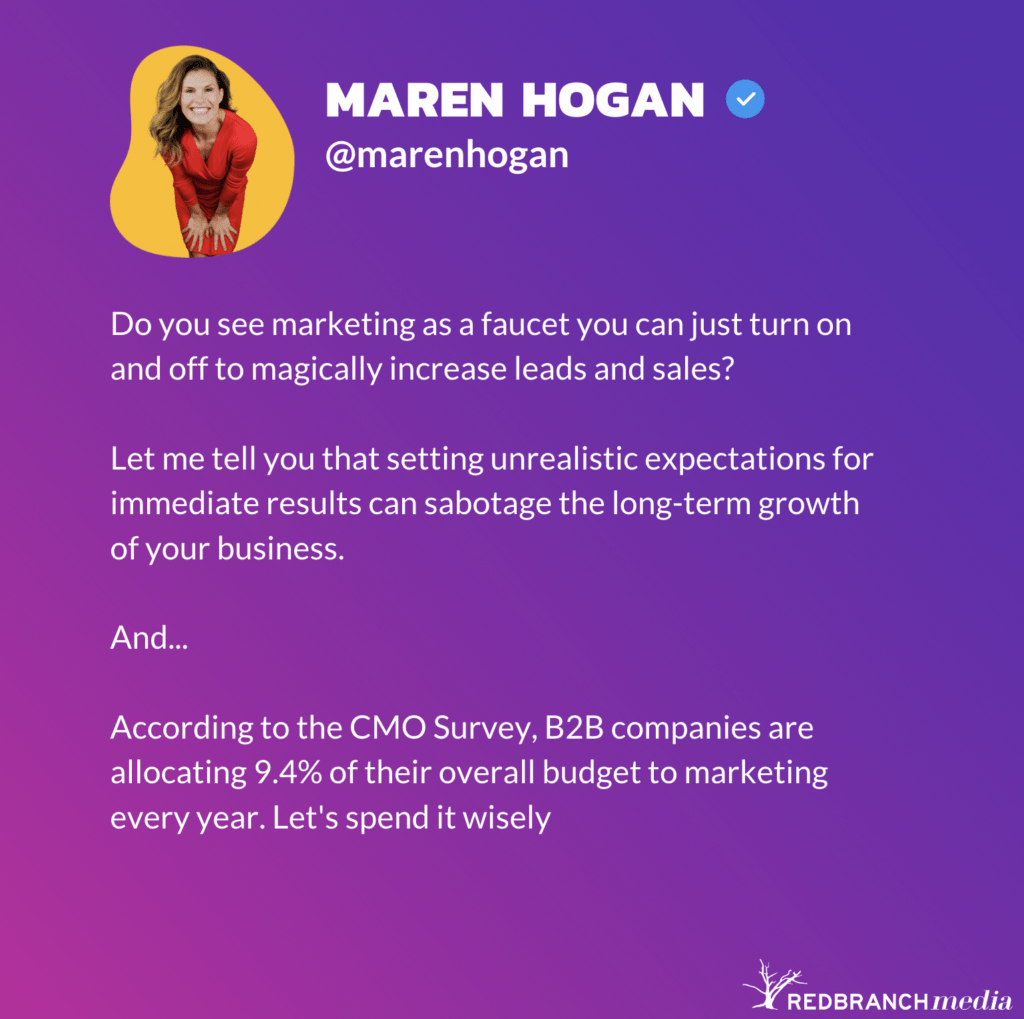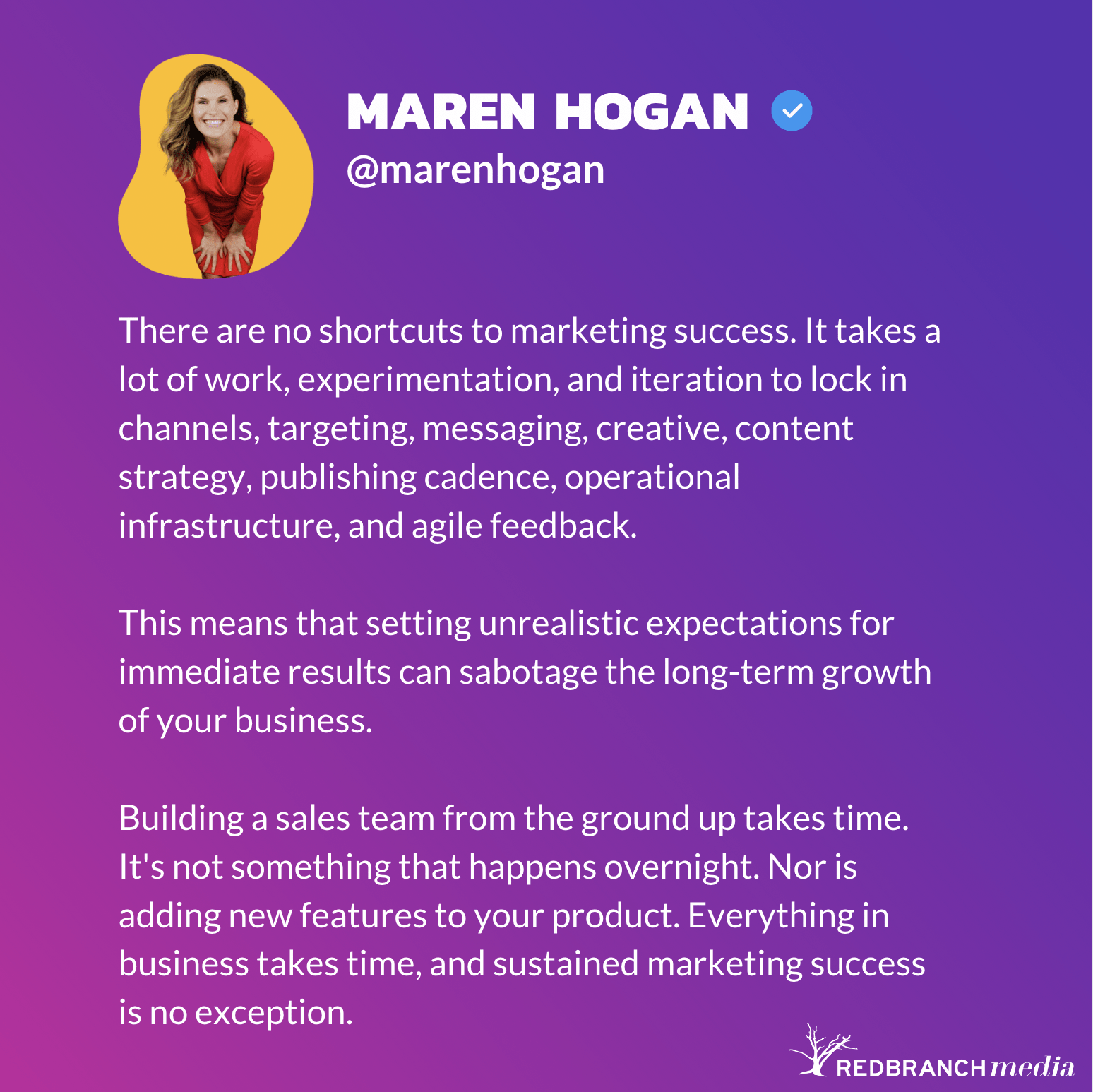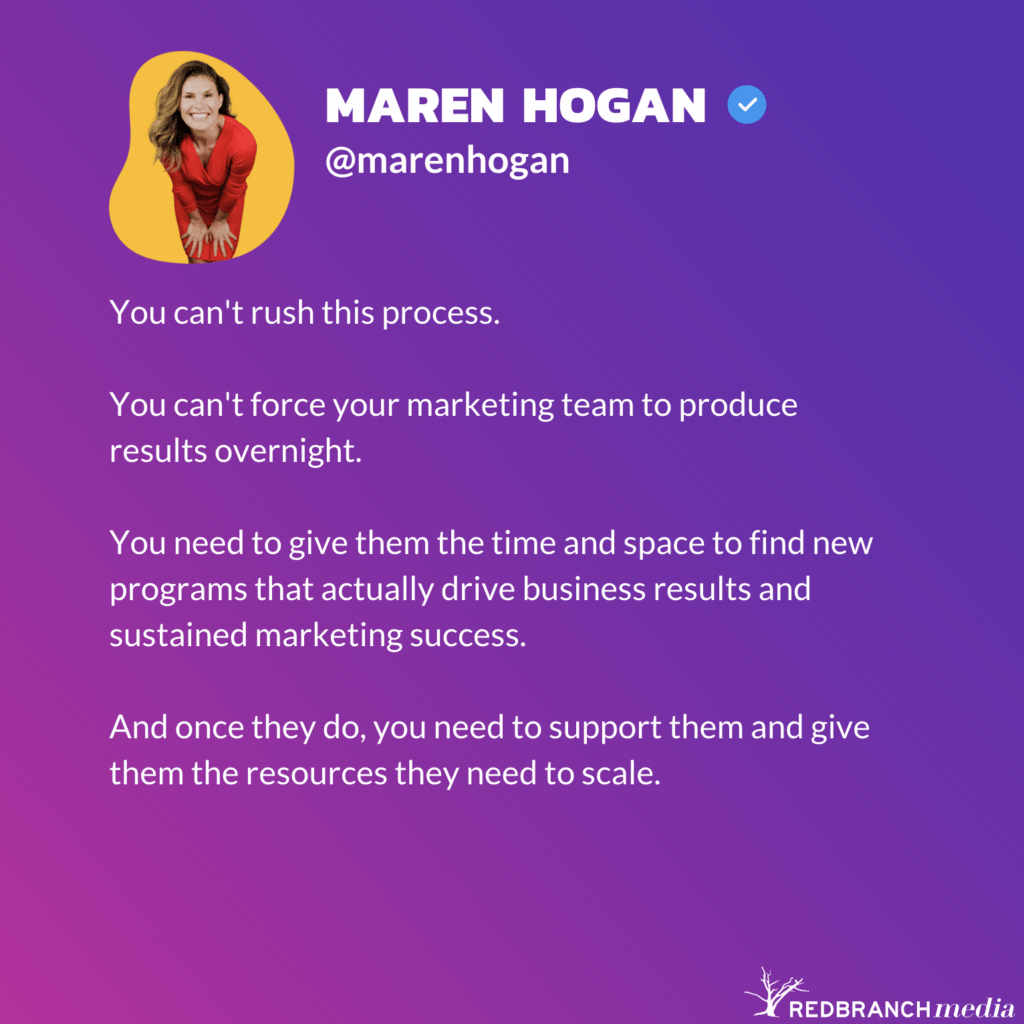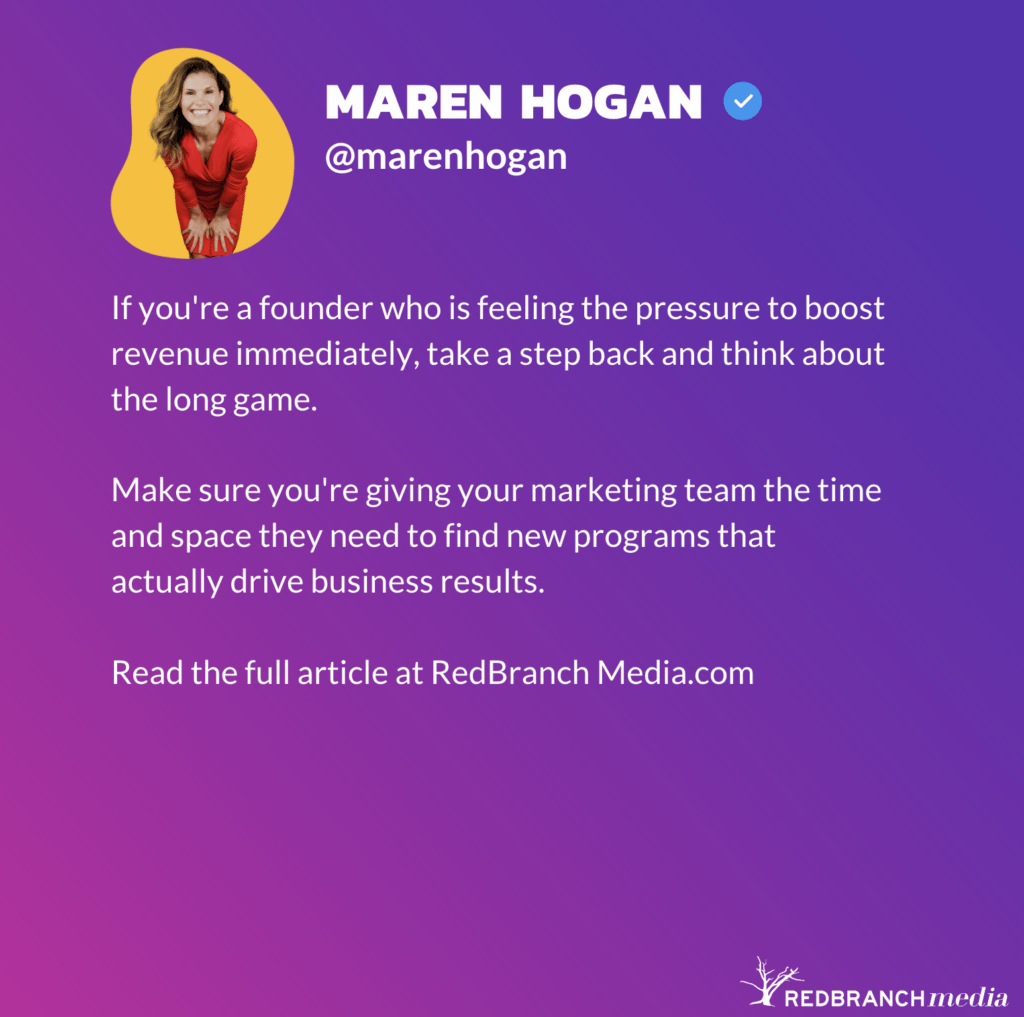Are you a startup founder who has just received funding and now feels the pressure to boost revenue immediately? Do you see marketing as a faucet you can just turn on and off to magically increase leads and sales? Let me tell you that setting unrealistic expectations for immediate results can sabotage the long-term growth of your business. In this article, I’ll share with you the importance of playing the long game when it comes to marketing success. We’ll talk about timelines, budgets, KPIs, B2B Enterprise marketing, and why focusing on quick wins can actually hinder sustained growth. So, take a seat, grab a cup of coffee, and let’s dive into the road to sustained marketing success.
As an agency owner who has worked in marketing for over 20 years, I have seen this mistake repeatedly: founders putting too much pressure on their marketing team to magically boost revenue immediately for a high-dollar sale that naturally takes months to years.
B2B companies are allocating 9.4% of their overall budget to marketing every year. (The CMO Survey)
Let me tell you, my dear startup leaders, that marketing is not a faucet you can simply turn on and off. It takes time, experimentation, and the right foundational success to truly see revenue growth over the long haul. You can’t just sprinkle some fairy dust on your HRTech product and expect the leads to start pouring in.

Public SaaS organizations that are one to three years old spend 80 to 120% of their revenue on marketing and sales. (Zenpost)
It’s not just frustrating for the marketing team, but it’s also damaging to the business’s success. Marketing, just like any other function, takes time to build, test, and optimize. And the reality is that the impact on revenue is not immediate. To achieve sustained marketing success, you have to change your outlook.
Marketing Success Is Like ANY Other Part of the Business
Now, I get it. You just received funding, and the pressure is on to show results immediately. But listen to me when I say that setting realistic KPIs early on and sticking to them is crucial to your success. Don’t change your goals mid-month, quarter, year, or engagement. And if you do, expect to increase your agency spending or require more resources from your internal team.
Building a solid marketing program takes months, if not years. Trying to rush the process will hinder your growth and result in a massive waste of resources.
Trust me when I say that there are no shortcuts to marketing success. It takes a lot of work, experimentation, and iteration to lock in channels, targeting, messaging, creative, content strategy, publishing cadence, operational infrastructure, and agile feedback. This means that setting unrealistic expectations for immediate results can sabotage the long-term growth of your business.
And let’s not forget that building a sales team from the ground up takes time. It’s not something that happens overnight. Nor is adding new features to your product. Everything in business takes time, and sustained marketing success is no exception.

U.S. B2B marketing data spend, which is used to understand and engage prospects and clients, is expected to rise to $3.77 billion in 2023, 3.2 percent more than last year. Over half (54 percent) of B2B marketers plan to spend more on customer marketing in 2023, according to a survey by Integrate and Demand Metric.
Leads and Form Fills Don’t Tell the Whole Story
It’s also important to note that “leads” are not the be-all and end-all of marketing success. As we just mentioned, validating the impact on the business takes time. Focusing solely on vanity metrics like traffic and “leads” can lead to a drop in business impact down the line.
Businesses need to have realistic expectations for how long it takes to build a successful marketing program. If you’re in Enterprise SaaS, you should be prepared to evaluate sustained marketing success in 4-12 months, with 3-4 months being the minimum time window. (That’s marketing, NOT sales.)
Newer Companies Often Have No Marketing At All
Why is that, you ask? Because marketing is about more than just driving traffic or generating leads. It’s about building a solid foundation that will support your high-dollar sale for months or even years to come. It’s about finding the right channels, targeting the right audience, crafting the right messaging, and creating the right creative and content strategy. It’s about establishing an operational infrastructure that can handle the influx of leads and customers, and it’s about being agile enough to iterate and improve based on feedback.
Now add to this equation the things we most commonly see with newer companies:
- A website not optimized for sales
- No distinctive brand voice
- No marketing processes or operations
- No sales materials or scripts
- A story that hasn’t caught up to the product shifts or pivots
- Little to no marketing and sales tech stack in place
- Lack of case studies, use cases, cohesive customer stories
You can’t rush this process.
You can’t force your marketing team to produce results overnight. You need to give them the time and space to find new programs that actually drive business results and sustained marketing success. And once they do, you need to support them and give them the resources they need to scale.

As an agency owner, my team and I work tirelessly to develop a strategic marketing plan that aligns with our clients’ business goals. We understand that sustained marketing success is a journey, not a destination. And the clients who succeed are willing to put in the time and resources needed to achieve sustained growth.
A typical B2B purchasing group involves 6 to 10 decision-makers. Each individual often collects four to five pieces of information to use to help the group decide what to buy. (Gartner)
If you’re a founder who is feeling the pressure to boost revenue immediately, take a step back and think about the long game. Make sure you’re giving your marketing team the time and space they need to find new programs that actually drive business results.
 Sustained marketing success is not about quick wins; it’s about building a foundation for long-term growth. And that takes time, patience, and commitment. So, please take a deep breath, and give your marketing team the time and space they need to do their job. Your high-dollar sale will thank you for it.
Sustained marketing success is not about quick wins; it’s about building a foundation for long-term growth. And that takes time, patience, and commitment. So, please take a deep breath, and give your marketing team the time and space they need to do their job. Your high-dollar sale will thank you for it.


